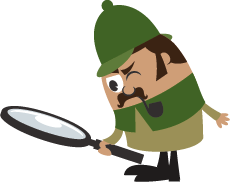By WCLS Executive Director Christine Perkins
I was talking to a library patron recently and asked how her week was going. “Terrible,” she reported, and went on to explain that her computer had been “hacked” while shopping online and she had been on the phone with someone who insisted she send him thousands of dollars. He even instructed her to make multiple trips to the ATM to withdraw the money and place it between pages in a magazine before packaging and sending it to him. She was shaken and angry, having spent the next several days cancelling credit cards and securing bank accounts.
Sadly, her experience is becoming all too common these days, with cybercrime and online payment fraud costing consumers and retailers billions of dollars globally each year. It would be easy to get paranoid and cynical, afraid to trust anything you read online. At Whatcom County Library System (WCLS), rather than feeling overwhelmed by the issue, we’re focusing on doing something about it. That’s why we’re teaching people some simple skills to help them navigate the internet more safely and become savvy consumers of digital information. We partnered with the Center for an Informed Public at the University of Washington on a grant from the National Science Foundation to explore the best ways to do this, and this month we launched an online ad campaign under the heading “Can You Spot a Scam?”.
Ads are running on social media, Google, and various other online services, and are being targeted to people with Whatcom County ZIP codes. They link to one of three quizzes that test people’s digital literacy skills. If you haven’t seen one, you can find the quizzes at the digital literacy page on our website: wcls.org/digital-literacy. You’ll find specific tips about shopping for vehicles online, using Facebook Marketplace, and purchasing beauty products (this is a significant area of online fraud). There are also links to other valuable resources, like a website that has you compare images of faces to determine which one is real versus AI-generated.
Some of the tips that seem obvious are the hardest ones to remind ourselves to follow! The number one thing is to slow down, check your emotions, and start asking yourself questions before you blindly enter your credit card data or take other action.
Here’s an example: An ad for an amazing widget pops up on your social media feed. The headline screams, “Don’t be the only one on your block who doesn’t have this mind-boggling widget. This is the widget the stars use and don’t want you to know about.” You think, “I don’t want to miss out! If the stars think it’s a good thing, it must be. I NEED THAT WIDGET.” Maybe it catches you in a weak moment, maybe you just feel like some retail therapy. Regardless, slow down for a minute. It’s ok to be intrigued, it’s ok to look into the details further. But do some investigating. Questions to ask include: Is this a reputable store? Has it been reported to the Better Business Bureau? What do people say about the product (and not just the paid – or even pretend – reviewers on the store’s own website). If you can’t find anything out about the product besides what the store itself is saying, be cautious.
This same tip applies ANYTIME you come across information online or elsewhere that pushes your buttons. Ask: How am I feeling about this? Why? What does the other person gain by making me feel this way? Are there signs that I should be leery of what the person is saying? Is something too good to be true? Is something feeding into your own belief system so perfectly that it could have been contrived just for that purpose? If any of these questions gives you pause, do some more research before you respond – don’t blithely re-post something or take it as truth.
If you’re still not sure if something is legitimate, call or stop by any Whatcom County Library System location. Our friendly staff can do some sleuthing with you. They know how to do reverse image searches to see if the photos you’re looking at are real or stock images. They know how to look for multiple sources to corroborate facts, and they can help judge the reputation of various sources.
WCLS has a number of books available for checkout that can help you navigate your digital world. A book list is available at wcls.org/digital-literacy. We also provide free access to “Consumer Reports Magazine” (paper copies and online), which is a time-tested, trusted source when making major purchasing decisions.
Online shopping scams are just one example of why it’s important to be cautious online. But, with the support of your trusted Whatcom County Library System staff, you can make online purchases with greater confidence and develop your critical thinking skills, too.
Note: This column originally appeared in the Feb. 21, 2024, issue of The Lynden Tribune.

